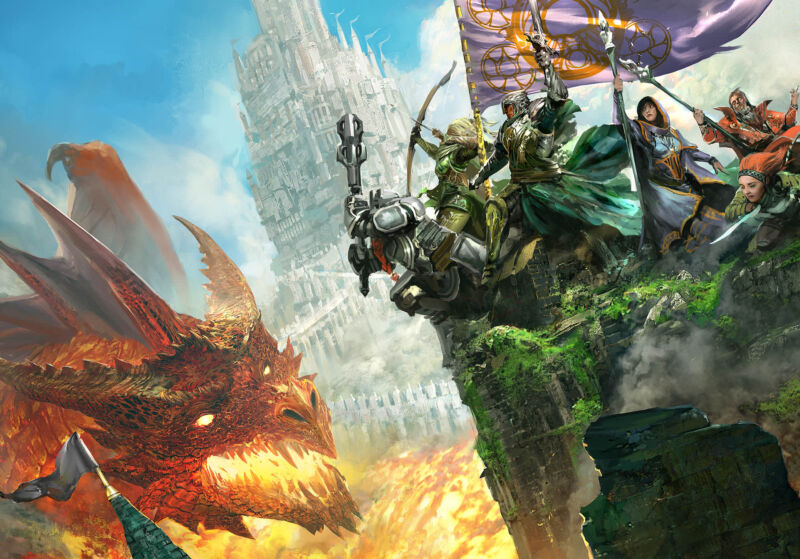
The original OGL 1.0a, first released in the early '00s, will now "remain untouched," WotC announced in a tweet Friday. What's more, the entire D&D Systems Reference Document (SRD)—which also includes creative content like classes, spells, and monsters trademarked and copyrighted by WotC—is now available under a Creative Commons Attribution 4.0 International License, meaning it's free to use as long as proper credit is given.
WotC's full retreat in this licensing battle comes as WotC says survey feedback on the latest draft update to the license was "in such high volume and its direction is so plain," that the company felt it had to act immediately, as Executive Producer Kyle Brink wrote on the D&D Beyond blog.That decisive response includes an overwhelming majority of more than 15,000 survey respondents who said:
- They didn't want to publish RPG content under the proposed OGL 1.2 (88 percent)
- The new license would force them to change a part of their business (90 percent)
- They did not want the original OGL deauthorized (89 percent) and/or
- They were not happy with WotC's drafted policy of virtual tabletop content (86 percent)
Beyond that, 62 percent of respondents said they wanted more content from the SRD included under a Creative Commons license (above and beyond the core rules that were covered as of last week). Now the entire SRD is under a Creative Commons license that, Brink pointed out, is "irrevocable in a way that doesn't require you to take our word for it." Choosing such a license is like going through "a one-way door," he added. "There's no going back."
Content creators will now be able to choose to use the original OGL or the new Creative Commons license as the basis for their D&D-related content going forward, Brink writes. And the SRD being under a new license means that there's no longer a need for a specific policy on virtual tabletop content; "with this new approach, we are setting that aside and counting on your choices to define the future of play," Brink writes.
"Thank you for your continued dedication and love for Dungeons & Dragons," WotC tweeted from the D&D Beyond account. "We are sorry for the pain we’ve caused to the community. We look forward to building what comes next with our players and creators."
Reader Comments (220)
View comments on forumLoading comments...